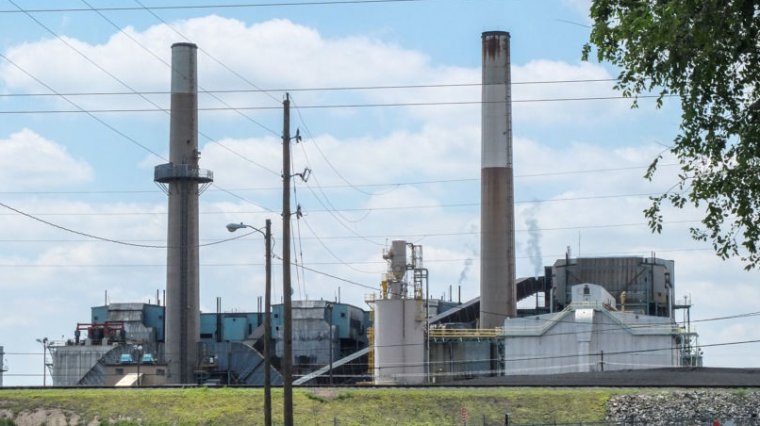Posts posted by X A V I
-
-

A comedian and Kim Jong Un impersonator claims he was detained at the Singapore Changi Airport on Friday ahead of promotional events he has planned for the coming days.
“(They) asked me what my political views were and if I have been involved with protests in other countries,” the lookalike, who gave his name only as “Howard X,” told Reuters.
“They said, ‘It’s the Trump-Kim summit, you’ve come at a very sensitive time.’”


X, who hails from Hong Kong, is in Singapore as part of a promotion for a mall and a seafood restaurant, the Associated Press reported.
He claims police at Changi Airport held him for two hours on Friday, before telling him to stay away from the Sentosa Island, where President Trump and the real Kim Jong Un will be meeting on June 12, and the Shangri-La Hotel, where President Trump will reportedly be staying.
Later on Friday, X met up with Donald Trump impersonator Dennis Alan to pose for photos in Singapore’s Merlion Park. Alan, too, said he believes the real-life meeting between Trump and Kim Jong Un was directly inspired by his and X’s February publicity stunt at the Winter Olympics in Pyeongchang, where they managed to sneak into a press area during the opening ceremony before being removed.

Despite stern warnings from police, X says he doesn’t think he’ll be getting any more trouble during his visit to Singapore.
"I'm here to stay. I don't think they will try and kick out the president. It wouldn't be good press for Singapore," X said.
The Associated Press contributed to this report.
-
-
-
:format(webp)/cdn.vox-cdn.com/uploads/chorus_image/image/59981169/968145746.jpg.0.jpg)
Democratic optimism about the 2018 midterms reached crescendo levels this winter after improbable wins in special elections in Alabama and western Pennsylvania. Liberals began to predict a “blue wave” — a sweeping series of electoral victories comparable to the GOP’s 2010 successes — that would vindicate the resistance and check Donald Trump’s power.
But now Trump’s approval ratings are ticking up. The “generic ballot” polls are tightening. And Senate races across the country are shaping up to be much more competitive than Democrats had hoped in states like West Virginia, North Dakota, and Indiana. Even safer-looking Democratic senators like Bill Nelson in Florida and Sherrod Brown in Ohio are facing extremely well-funded opponents with solid statewide name recognition.
The question for many liberals, then, is: Did the wave peak too soon only to dissipate in the face of a strengthening economy?
Though it feels like the odds for liberals have gone from overwhelmingly positive to desperate quickly, the reality is a bit duller. As a country, we have, in many ways, failed to process some of the key lessons of the 2016 campaign. Modest-size polling errors are common; events are important to politics, and they are inherently unpredictable. But Democrats retain an edge in the polls, and the results from California continue to suggest that Democrats are modest favorites to win a House majority.
House Democrats’ polling advantage has narrowed
Back in the final week of 2017, Democrats held a generic ballot polling advantage that averaged 13 points or more. The numbers have bounced up and down since then, but the general trend has been in Republicans’ favor; Democrats now have an advantage of roughly 5.5 points.This narrowing has been happening for some time and is not a sudden news event. Two months ago, for example, Democrats were 8 points ahead — meaningfully better than their current numbers but also far worse than the December numbers. It’s worth saying that by the time of Conor Lamb’s surprise victory in the PA-18 special election, the Democratic lead was already down to “only” 8.5 points. Most of the narrowing, in other words, happened before Democrats’ most impressive special election victory rather than representing a recent deterioration.
A glance at Trump’s approval ratings, however, does make it clear that the shift in the news environment since 2017 has been advantageous to his cause.
Back in 2017, there was a lot of scandal news and coverage of Trump antics, but there was also intensive coverage of ongoing congressional debates on health care and taxes where Republicans took unpo[CENSORED]r positions. That unpo[CENSORED]rity helped contribute to Doug Jones winning a special election in Alabama in December. Jones’s victory, combined with John McCain’s poor health, have largely prevented Republicans from advancing a contentious legislative agenda in 2018.
A news climate dominated by Trump scandals and culture war stuff isn’t exactly amazing for Republicans, but it’s more favorable than one dominated by Trump scandals and unpo[CENSORED]r Republican legislation.
There’s offsetting good news for Democrats
Interestingly, Democrats’ odds of capturing the House have not declined nearly as much since November as their poll numbers.G. Elliott Morris’s statistical model, for example, gives Democrats a 63 percent chance of taking the House in November, which is down only about 4 or 5 points from its high. Gamblers are a bit more pessimistic than Morris (whose model believes, based on history, that the opposition party is more likely to gain in the polls than decline) but similarly see a fairly modest change.
One key issue here is simply the passage of time. Your odds of winning on Election Day are a function of both how large your polling lead is and how far away the election is, since the more time until Election Day, the more time there is for things to change. Democrats’ June polling lead is a lot smaller than their December polling lead, but the June lead is more valuable.
The other really significant factor is the change in Pennsylvania’s congressional map from one highly gerrymandered to favor the GOP to one that’s about proportional in its partisan lean. The overall map still has a strong pro-Republican tilt, but Pennsylvania is a big state. That change meaningfully altered the overall slant in a way that’s boosted Democrats’ fortunes.
Similarly, while final results are not yet in from California, the votes counted so far strongly suggest Democrats successfully avoided getting locked out of the general election by the Golden State’s weird “top two” primary system, greatly improving their odds of winning some of these seats in November.
Democrats can also take solace in the fact that recent election outcomes have been better for their party than the polls.
Some extra reasons for Democratic optimism (or wishful thinking)
You may recall that last November, there was an extraordinary level of hand-wringing in Democratic circles about Ralph Northam’s extremely narrow polling lead over GOP nominee Ed Gillespie. Was the party about to blow it again, but this time in a clearly blue-leaning state where Donald Trump fared poorly in 2016?It turns out that, no, polling errors can happen in both directions. While Republican candidates moderately outperformed their poll numbers in 2016, Democrats outperformed their poll numbers in 2017.
Northam didn’t beat Gillespie narrowly, as the polls suggested he would — he beat him solidly. And Democrats picked up a ton of House of Delegates seats. Phil Murphy romped to victory in New Jersey as well. And then in the Alabama special election, Doug Jones outperformed his poll numbers, winning narrowly when the polls said he would lose narrowly.
After polls moderately overrated Democrats in the 2016 and 2014 cycles, people with short memories grew accustomed to the idea that maybe pollsters systematically underrate the GOP. But in the 2012 cycle, polling error favored Republicans. And so far in the Trump era, the same has been true with Democrats, who are performing, on average, 2.3 points better than their polling.
By the same token, we haven’t yet had much polling that focuses on the question of who is likely to vote in 2018. But the evidence we have so far suggests that Democrats will have a turnout advantage.
Some of this is psychological, with the “out” party naturally more motivated to vote in the midterms. But some of it is demographic. Trump has made the GOP more po[CENSORED]r with working-class white voters but less po[CENSORED]r with white college-educated professionals. That’s a geographically efficient swap in terms of the Electoral College, giving up useless or superfluous votes in Texas and California in exchange for valuable ones in Michigan and Pennsylvania. But it’s a bad deal in terms of turnout, since educated voters have a higher propensity to vote than working-class ones.
Of course, this all may be no more than wishful thinking. At the end of the day, the most important thing to know about the November midterms is that they won’t be happening until November. Events in the rest of the summer and fall will likely change things, and it’s perhaps not productive to spend too much time worrying about the inherently unpredictable nature of events when we can actually speak more authoritatively about the policy stakes.
A little rant about the “wave” metaphor
It’s become common in recent years to speak about certain elections — 2006 for the Democrats, 2010 for Republicans — as representing metaphorical “waves.” A lot of 2018 commentary has ended up focusing on this metaphor.That, in turn, has tended to devolve into a kind of semantic quibbling over what a wave is. If Democrats secure a narrow one-seat majority in the House, is that really a wave? Does it matter that due to gerrymandering, securing a narrow majority would almost certainly entail a large 6- or 7-point win in the po[CENSORED]r vote? If Democrats carry the po[CENSORED]r vote by 5 points and pick up 22 House seats and one Senate seat despite a very unfavorable map, is that a non-wave just because it would leave the GOP in possession of razor-thin majorities in both bodies?
Amy Walter of the Cook Political Report says that wave-ness (or lack thereof) actually has nothing to do with the magnitude of the electoral win.
-

Newly released footage from Arizona appears to show another example of police using undue force on an unarmed citizen.
The surveillance video opens with a Mesa police officer exiting an elevator onto an apartment complex's fourth-floor deck. A man — later identified as Robert Johnson, 33 — comes into view. He leans forward on a railing and checks his phone.
About three minutes later, four officers surround Johnson while he appears to be on his cellphone. They talk to him and he shifts his body against a wall. Then they grab him, knee him in the gut and throw several punches to his head and body until he slumps to the ground.
They place him in handcuffs. Later, an officer shoves his head into the elevator door.
The 20-minute clip released publicly Tuesday is part of an internal investigation that led the officers to be placed on administrative leave, Mesa Police Chief Ramon Batista told NBC affiliate KPNX.
While the incident occurred May 23, Batista said he only learned of it a week later.
"This in no way represents the whole work that is done everyday," Batista said. "They're human beings and certainly at first glance this looks like a mistake, it doesn't look right. And it's my job, it's our job to collectively investigate and find the answers to this."
Johnson was not being investigated at the time, but was at the complex while his friend allegedly tried to get into an ex-girlfriend's apartment, police said. Authorities were called as part of a domestic dispute.
Johnson, who did not have any weapons on him, is facing disorderly conduct charges, KPNX reported.
The video does not contain audio, although police claim Johnson was argumentative and refusing commands to sit down. Another man can be seen in the video sitting against a wall.
"There is no explanation that can justify that level of force," Johnson's pastor, Andre Miller, told reporters. "When you look at the video, even after he was unconscious, he was still struck."
Johnson's attorney, Benjamin Taylor, couldn't immediately be reached for comment Wednesday. He said in a statement Tuesday that his client was cooperative and being peaceful against the wall.
"The misconduct of these officers would have gone unnoticed if it had not been captured by surveillance videos at the apartment complex where the assault occurred," Taylor said. He wants the police department to hold the officers accountable and "develop a law enforcement culture that meets community and constitutional norms."
The Mesa Police Association, which represents the officers, said in a statement that the video does not provide the full context of the encounter because there is no audio.
"It is important to understand that any use of force, when viewed, is difficult to watch and never looks 'good,'" the union added.
As a result of the incident, the Mesa Police Department has changed its use-of-force policy so that officers can only hit people in the head or face if they become physically violent, officials said. Previously, the policy could be interpreted that it was acceptable for an officer punch someone even before they turned violent.
-
This birthday is this friend @✘ 6ix9ine ✘
Happy birthday hand I hope you meet many more
God bless you
-
 1
1
-
 1
1
-
-
V2 text , border
-

Authorities in Tennessee are searching for a man who allegedly hacked his former boss to death with a hatchet and another sharp object while he was leading a workout routine at as Nashville-area fitness center.
Metro Nashville Police said Domenic Micheli, 36, was seen on surveillance video pacing back and forth in a parking garage beneath The Balance Training center at a shopping center in the Belle Meade community before going inside and attacking 46-year-old Joel Paavola around 7 a.m. Monday.
"Micheli brutally, savagely attacked Paavola at the front of the business," Metro Nashville Police Department spokesman Don Aaron told reporters Micheli struck his former boss several times with the hatchet and another weapon, a possible second hatchet or large knife, before fleeing the shopping center in an older model small silver Toyota Prius or Yaris, according to police.

"It's just a senseless, violent, brutal attack this morning on Mr. Paavola as he was there in the business," Aaron said Monday.
Nashville police said Tuesday that after the attack, Micheli went to an urgent care facility in Gallatin, located about 30 miles northwest of downtown Nashville.
The 36 year told was "limping from a left leg injury," according to police.
Officials said Micheli was arrested on April 27, 2018 for driving his car to a checkpoint near the White House and refusing orders to move. The judge subsequently ordered a mental evaluation and treatment when there was questions about whether Micheli was mentally fit to stand trial, FOX17 reported.
-
Congratulations !!
-
 1
1
-
-
Hello
Good Luck
-
-
Accepted.
Removed !!
-
Welcome !!
-

John Oliver kicked off Last Week Tonight explaining how the June 12 summit between the U.S. and North Korea was suddenly back on over and un-read clown letter.
Last week, President Donald Trump met with senior North Korean official Kim Yong Chol who had brought Trump this comically oversized letter from North Korean dictator Kim Jong Un. Trump had his picture taken holding the clown letter, standing next to the North Korean envoy.
“And as if smiling while holding a letter from a dictator were not enough of a propaganda coup for North Korea, the president raved about the letter to the press,” Oliver marveled.
In footage of Trump’s latest impromptu presser on the White House lawn, after the photo-op, Trump teased the gaggle: “Oh, would you like to see what was in that letter! Wouldn’t you like? How much? How much?”
“It was a very interesting letter. At some point, I’ll be able to give it to you, maybe,” Trump added.
Oliver noted Trump would make an even worse Moses than he is a president: “Oh, wouldn’t you like to see what’s in these tablets! Maybe I’ll show you later – if you’re lucky.”
Even stranger, about eight minutes later in the presser, after calling the letter interesting, Trump told the reporters: “I haven’t seen the letter yet. I purposefully did not open the letter. I haven’t opened it…I said [to Kim Yong Chol] “Would you want me to open it?’ He said, ‘You can read it later.'”
“I may be in for a big surprise, folks!” Trump told the reporters, as he walked away, smiling.
Oliver agreed. “Yeah you might, though! Because you just agreed to a summit without reading the contents of the letter that supposedly convinced you to do it!”
“Worst-case scenario: it’s a declaration of war. Best cast scenario it says:
Later in his show, Oliver also made reference to the controversy over fellow The Daily Show alum Samantha Bee having called Ivanka Trump a “feckless c**t” in the latest edition of her late-night show Full Frontal. Some have demanded TBS cancel the program. Bee has apologized in a statement, and says she will address the controversy again on this week’s edition.
During a segment about the bilking of seniors by corrupt wards, Oliver told a joke having to do with the concept of time on the planet Mercury – a gag he said was designed exclusively for astrophysicist Neil DeGrasse Tyson, and wondered what Tyson thought of the gag.
Tyson said the joke was not factually up to snuff and explained why.
“Shut up Neil! Why do you have to ruin everything!” Oliver began to scream. “Just enjoy something, for once in your f*cking life! What is wrong with you, you feckless – oh, never mind, it’s not worth it. Bad idea.”
Subscribe to Deadline Breaking News Alerts and keep your inbox happy
-
Welcome TO CSBD : Rules
-
 1
1
-
-
Hello
your internet connection being to slow You must shut down all programs that require many Internet
Restart your modem And Go update.
Regards XAVI.
-

Update 2:43 pm: This afternoon White House Secretary Sarah Sanders said that President Trump told Energy Secretary Rick Perry to "prepare immediate steps" to prevent coal plants from early closure.
Original Story 9:10am: In a draft memo to be circulated on Friday, the Department of Energy (DOE) argues in favor of using a wartime rule called the Defense Production Act to bail out failing coal and nuclear plants, according to Bloomberg, which obtained a copy of the memo.
The memo suggests that the Energy Department could force grid operators to buy power or electric generation capacity from a list of pre-determined power plants for two years, “to forestall any future actions toward retirement, decommissioning or deactivation.”
During that time, the DOE would conduct a study of vulnerabilities in the US power grid system. The justification for using the Defense Production Act would be that keeping unprofitable power plants running is a matter of national security until the two-year vulnerability study is complete.The memo allegedly wrote that "Too many of these fuel-secure plants have retired prematurely and many more have recently announced retirement." According to Bloomberg, the memo added that these coal and nuclear plants are being replaced by natural gas and renewable power generation that is not secure or resilient.
Such a statement has been contradicted by several power grid operators, including PJM, one of the largest independent system operators in the country. The recent "bomb cyclone" system of extremely cold weather in the Northeast this winter showed off that the grid could operate well despite coal retirements.
Boosting the flagging coal industry was one of the key campaign promises of President Trump, despite the fact that it's one of the most polluting forms of energy that the US has, and it employs significantly fewer people than either the natural gas, oil, or solar power industries. Over the previous year, Energy Secretary Rick Perry has tried to justify a number of different actions to make good on Trump's promise, to little avail.
Initially, Perry issued a politically charged memo commissioning a study to find the regulatory causes of coal retirements. The resulting study, however, said that no particular regulation was causing coal plants to retire: instead the cheap cost of natural gas was convincing power companies to switch over to that fuel. Perry then proposed a rule that would require power purchasers to compensate coal and nuclear plants over and above the compensation they were already due for their part in supplying "baseload" energy. However, the rule had to be approved by the Federal Energy Regulatory Commission (FERC), and that regulatory body found that there wasn't sufficient evidence to approve Perry's rule.
Failing that, coal and nuclear plant operator FirstEnergy requested that the DOE use an emergency order to bail out one of the company's subsidiaries shortly before it declared bankruptcy. In April, E&E News reported that an interagency group was exploring the use of the Defense Production Act, which gives the president broad power to boost industries that are deemed necessary for national defense.
The draft memo circulated today is not an official proposal for a rule, but it does suggest that the Trump administration is getting more serious about invoking the Defense Production Act to the benefit of coal and nuclear.
-
Hello
You need just uninstall your cs1.6 and download version from this link : http://rampage.us.lt/cs-1-6-warzone.html
I hope your problem will be solved.
Regards,
-
 1
1
-
-
-
v1 : Blur
-
welcome to csbd
-
Good Job ,Keep it up =))
-
 1
1
-
-

U.S. Commerce Secretary Wilbur Ross has called out the European Union for opposing trade negotiations at a time when China was willing to hold talks.
"China are paying their tariffs," Ross told the panel at an economic development forum in Paris on Wednesday, in response to EU criticism of sweeping import tariffs the White House announced on its trade partners all over the world in March.
"China hasn't used that as an excuse not to negotiate... It's only the EU that is insisting we can't negotiate if there are tariffs," he added.
President Donald Trump's protectionist move, which would impose a 25 percent levy on all steel imports and 10 percent on aluminum, garnered instant criticism upon its announcement from Republicans and Democrats alike and saw trade partners threatening to retaliate. The administration has delayed the imposition of the levies, extending negotiations with partners Canada, the EU and Mexico by 30 days to the tail end of May. Leaders now await a decision from Washington.
EU lawmakers have said they are open to discussions, but would not "negotiate under threat" — this was reiterated by Dutch Foreign Trade and Development Minister Sigrid Kaag, also on the panel, who expressed a stark difference in opinion from her American counterpart.
"EU leaders have expressed the expectation that there should be an unlimited exemption," Kaag said in response to Ross, pointing out that the U.S. and Europe are historic allies across a number of areas from trade to security, making them a wholly different case to China.
"We're finding ourselves in a situation we shouldn't be at," she said, adding that, "dialogue with the U.S. remains primordial… the fact China continues negotiations I don't think applies to us in this case, I don't think that's an argument. I understand, but I disagree."
Kaag said the European bloc would wait for a decision in the coming days, reiterating that the U.S. remains very important and that she believed they would find a way forward.
"I'm sure we will, and there can be negotiations with or without tariffs in place," Ross said. "God knows, there are plenty of tariffs the EU has on us. So it's not that you can't talk just because there are tariffs."
-
V1 Blur , text



New cars 2018: a complete guide
in Auto / Moto
Posted
If you’re in the market for a new car, it’s worth getting excited – 2018 looks set to be a great year for new models from the majority of the world’s major car manufacturers.
All-new designs join updated long-standing favourites in 2018’s wide and varied lineup, with a diversity of engines, bodystyles and technology never seen before. The year will see electrification continue across the board and before too long, whether it’s a supermini or a supercar, the chances are you’ll have the option of hybrid power at the very least.
The usual year-on-year trends are present and correct; EV models will be more advanced and usable than ever before. Many of these will offer viable alternatives to petrol, diesel and hybrid models which themselves will offer improvements in economy and emissions for 2018.
Superminis, family cars, saloons, coupes, sports cars and supercars will all arrive over the next 12 months, but buyers of SUVs will be particularly spoilt for choice, with new models of all shapes and sizes on the way.
The hot topic of autonomous vehicles is likely to rumble on and we’d bet on seeing considerable improvements in the effectiveness and safety of the systems that run these cars – both those on sale and on test by pioneering manufacturers.
Read on to get a sneak preview of the new cars worth waiting for in 2018.